Friday Night Fictions: author profile Laura Jean Mackay
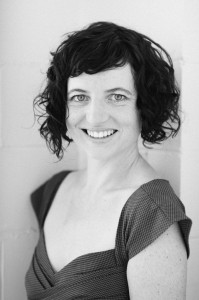
Friday Night Fictions debut author: Laura Jean McKay
I first came across Laura Jean McKay’s collection of short stories Holiday in Cambodia when I was researching new books set in the region, inspired by Walter Mason’s Destination Cambodia. After a brief trip there in 2005, it’s a country I have remained fascinated with. I wrote voraciously about it at the time (must fossick for that notebook!) and remember, at the end of each day travelling, being exhilarated and exhausted by the conflicting imagery — the gut-wrenching violence of the Killing Fields tour; the joy on the face of a girl as she gave me a tarantula to eat — and the sudden awareness of the richness of my life, in all senses of the word (see Laura’s reflections on this later).
So I was thrilled when Laura sent in her book to be featured in November’s Friday Night Fictions club for debut authors. Her collection is harrowing, gutsy and makes you squirm at times. She takes on a variety of perspectives, all confidently characterised, including the dreams of local Cambodians — a young prostitute; a woman who works in a factory — interspersed with the more familiar terrain (for Australians) of the tourist abroad.
The writing is straight, finely tuned and never sentimental. And while I don’t think shorts exist merely as a lead-in to longer work (see my recent review in The Australian of The Great Unknown and Sleepers Almanac), it’s a sign for me of the writer’s potential if I’m left at the end of a short story desperate to know more.
When I interviewed Laura, I was particularly interested to hear that her dad was a writer — as my father is too. I’ve often wondered whether people can have a ‘writer gene’, where they are born to write, as it often feels like this when I do it. I still think it’s pretty much all about hard work and resilience but, comparing my books with my dad’s, there’s a similar voice that emerges, a style that we seem to share. I also love her comments about shyness and eccentricity (as I’ve unearthed ideas about this on the blog along the way).
And I’m very grateful that she chose to ignore those people who told her not to bother with a short story collection, because ‘people won’t read it’. We need more of them published! You can hear Laura reading one of her short stories ‘The Expatriate’ if you fancy a taste.
Do you remember the moment when you decided you wanted to be a writer?

Laura Jean McKay’s debut collection of short stories, Holiday in Cambodia
I don’t think there was a moment where I thought ‘I will be a writer’ but there was definitely a point when I started writing. My dad, who was a poet, died before I was born. Mum and some of his friends published his poems in a book that was always around the house when I was little. When I was 11 or 12 I found a suitcase of all his drafts — those scraps of paper and notebooks that most writers have. I think seeing that process, a whole suitcase filled with process, and knowing about the final product of the book had a big influence on me. I started writing poetry using sort of the language he used. So there was this kid poetry — often written in texta — with this adult man imagery. It makes for pretty strange and interesting reading. I guess poetry taught me how to look at the world — and then I found prose.
Your book is a collection of short stories set in Cambodia. Did you set about from the start to publish a collection of short stories? Or did you write one story at a time and start to see the connections?
I actually started off writing an historical novel about the 60s surf rock music scene that was rocking Cambodia before the Khmer Rouge. I wrote about ten or twenty thousand words of it and realised I couldn’t fit all I wanted into that structure. I naturally default to writing short stories — I think I always will — and so as well as struggling through the novel I’d been bashing out these stories about modern Cambodia. After a while I realised that I was working on a collection and that this was the only structure that would allow me to say what I wanted to say. The novel is in there though! It’s a story called ‘Breakfast’ and I reckon I wrote a whole novella’s worth to get to the final 5000 words. I don’t know why it was so hard — maybe because it was carrying the weight of the novel or maybe because so much was lost when the Khmer Rouge marched into Phnom Penh in April ’75. It’s not a sad story but I found it incredibly hard to write because I was writing about a lost time, a time not without problems, but when Cambodia was independent and thriving.
A lot of people told me not to write a short story collection, that it wouldn’t be published and that people didn’t read them. I thought, ‘Well, I can either write a novel that I know isn’t going to be what I want it to be, or a short story collection that will.’ My partner says I’m dogged that way …
Why Cambodia? Did it start off as a holiday?
I first went to Cambodia as a volunteer aid worker in 2007. Phnom Penh, and Cambodia, was really doing pretty well by then — a lot of people had adjusted to independence from the UN and there were facilities in place, roads and mobile phone services, cafes etc. Cambodian people were reviving traditions and doing incredible things with education. I got a job working up in the remote north and expats told me stories about how all the aid workers used to meet every Friday night as a rule so that they would know everyone was still alive and not lost or shot somewhere out in the jungle. Still, I was completely bowled over by the levels of poverty, the lack of infrastructure, the corruption and the violence. I saw a man using his chin to cross a busy road in Phnom Penh because that was what he had left to use. I knew that behind the polite and smiling exterior that most tourists experience on a holiday, the levels of domestic violence were (and possibly still are) astronomical. The tourist/expat scene of which I was a part, completely shocked me as well. I was repulsed by the things I said and the assumptions I made and the way I acted. My perception of what ‘rich’ is completely changed as I realised that money in the bank was one thing, living in a country that will care for you if you’re old, young, physically or mentally disabled, a single parent etc, is another. I realised I was billionaire-rich because I was from a location in the world and of a race and had a passport that meant I would probably be looked after. This all makes for a lot to write about …
Why did you choose the Dead Kennedys song as your title (other than that it’s catchy!)?
The title for the book came very late in the piece, after I’d completely rewritten the first draft and I was about to send it out to publishers. I used to hang out in the 90s punk scene in Brisbane, where my contribution was having blue hair and attending a lot of gigs, and I remember hearing ‘Holiday in Cambodia’ on a CD for the first time and thinking that the Dead Kennedys really knew about everything. I think I was singing the song to myself in 2012 when I was taking a break from writing and realised that the lyrics of that song (written in 1980) still applied, that I had experienced a version of what Jello Biafra was describing, and that Holiday in Cambodia was the title for my book. If there is a central question to the collection, I guess it’s: how can you have a holiday in Cambodia? It’s like having a holiday in Rwanda, or Syria.
Recently Jello Biafra’s agent wrote asking for a few copies of the book …
What is it that you love most about writing?
Everything and nothing. I love the first image that I see so clearly it’s as though it has happened, and I know there might be a story there. I love when I’m writing absolute shit and it’s impossible and it’s only the fear and guilt that’s driving me on (fear that I won’t finish it, guilt that I’ve given up everything else to do it) and the shitness builds and builds like a bubble and then pop I’m through it — I know what I’m writing and that it will be okay. I love that every time I write I have to solve a series of problems and if I do that I can handle most things. I love getting something to the point where it’s as good as I’m physically and mentally and emotionally capable of producing and knowing that, with a good editor, I’ll be able to take it even further. I love being inside a story — where I’m not thinking about it but I’m so in it that it takes up my everything, even when I’m not working on it. You know?
How did you go about getting the book published?
It wasn’t as hard people said it would be but it wasn’t as easy as some publishing tales I’ve heard either. I sent it to one publisher before it was ready and that was a mistake. I imagined they would see what I envisioned for it and instead they, understandably, saw what I gave them. I got some truly lovely feedback and only one shitty rejection. Most people wanted to see ‘my novel’. It didn’t take too long before I had a great meeting with Black Inc. who said they liked the work and wanted it. I admired the hell out of their books already so it was exciting but also it felt just right.
I wrote two novel manuscripts in my 20s so I knew how to write longer works but I didn’t know how to take them to the next stage. I thought the process was: write the first draft, ‘edit’ it to make the sentences nicer, proof read, send to your favourite publisher. I didn’t understand how the process of rewriting 50 per cent of the book until it’s almost unrecognisable could bring it to a stage where a publisher could see it as a book. Now I’m writing a novel and I’m working on getting the story out and the characters and voice right without being too particular, knowing that in the next draft I’ll kick its arse.
You set yourself the challenging goal of writing from many character perspectives, both Cambodian and traveller. How did you research the Cambodian characters in particular? And how did you check that the writing seemed true?
I didn’t set out to write from a lot of different perspectives. I think every short story (or every piece of writing) needs to be treated as unique, something with its own needs that might be vastly different from the previous story I wrote. That’s probably where the different perspectives come from. Often I would write a story from one perspective and change it in the next draft. With the story ‘Like no one is watching’, I originally wrote the whole thing from the perspective of a Cambodian woman. It’s about acid throwing in Cambodia, which used to happen quite a bit as a ‘crime of passion’. Someone would get jealous about a real or perceived affair and would buy acid from the market for a few dollars and throw it on the face of their partner or the person they thought their partner was with. Often it doesn’t kill the person but maims them horribly — it’s incredibly painful and damaging. I realised that I needed to tell it from a Western perspective because not only is it an awful situation but it’s so culturally scary. I wanted to juxtapose that with the culturally awful things that Westerners do.
I did a Masters degree researching stories written about Cambodia by Cambodian and non-Cambodian writers. I also used my experiences, showed some stories to friends in Cambodia and generally sought advice. I worked with a great writing group in Phnom Penh who were so encouraging and inspiring. Although I don’t speak Khmer I was really influenced by the stories that I was told or that were published in English — both by contemporary and older Cambodian writers. One of the stories I wrote was published in Nou Hach literary journal in Phnom Penh — that felt really good.
I had a book launch of Holiday in Cambodia in Phnom Penh and Chakriya Phou — a writer whose work I love — launched it. Her take on the stories was so incredible — I learnt things about Cambodia from her speech that I wouldn’t have been able to access if we weren’t in touch through writing. Having said that, the stories are fiction. They’re not true. I would be very surprised if some people didn’t find them inaccurate and sometimes offensive. I don’t think you can escape that as a fiction writer, especially one writing about a different country and culture. I guess that’s another reason I called it Holiday in Cambodia, to make it clear that I am always a tourist in the places I write about.
Do you have a writing community where you live? Do you like the company of other writers when working on drafts, or are you someone who prefers to go it alone?

Janet Frame’s short stories were a great influence on Laura Jean McKay’s work
My partner, Tom Doig, is also a writer and last year we started our PhDs and moved to Portarlington, a bay-side town on the Bellarine Peninsula. We did that so we could write and to write we needed to be in a place where we knew no one. I have actively resisted making friends here. Before that we were living in a unit in Brunswick overlooking our concrete car space and we were pathologically social. We had spaces in an awesome writers’ studio and met with friends every other day and there were festivals and parties and I said yes to everything. Sometimes I think I was drawn to short stories because I could get one out in a couple of writing sessions and still go to the thing I had on that night. But I also want to write novels and a quiet town with the bay out the window is the company I need at the moment.
Now my writing community is more formal. I see people at writers’ festivals and meet up with a writing group every six weeks or so where we rip each other’s stories to shreds and drink tea. I miss my friends and family, though, and go into the city to hug them when I can.
What is the most important thing you’ve learned in the process of writing your first book, that you wish you knew at the beginning?
Because I’d tested out a lot of my awful behaviour and mistakes on my first manuscripts, I felt that the creation of this one went pretty well, in that I had some terrific readers to go through the first draft and tell me all the things that needed to be done. I knew how much work I’d need to do to make it publishable. I wasn’t under any illusions about some magical muse who would take me away or that I would be discovered. In retrospect, with the first manuscripts, I had some incredible opportunities presented to me that I either didn’t recognise or was too shy to take up. I was so shy. People don’t think so because I like performing and being on stage. I’ve learnt that eccentricity is more productive than shyness so have settled for that.
Which authors have been instrumental to your own reading and writing?
I don’t love all of one author’s work and I think that’s a good thing. It shows that they’ve changed and developed and challenged themselves, trying new things that appeal to different readers. I adore almost every Janet Frame short story I’ve read, for example, but can’t read her novels. Same with Lorrie Moore. Gritty realist literary fiction with a dystopian edge is probably the book shelf I would gravitate towards in the ultimate bookshop!

Arundhati Roy’s novel The God of Small Things changed Laura’s perception of the novel
When I was younger, poets like William Blake, Sylvia Plath and Leonard Cohen (I didn’t know that Cohen was a singer for a very long time) influenced me. I read Arundhati Roy’s The God of Small Things when I was 20 and it changed my idea of how a novel could be. Janet Frame’s The Lagoon and Other Stories and JD Salinger’s To Esme with Love and Squalor are short story collections that I have read over and over again — they are so perfect and flawed: the best combination. I really love Raymond Carver’s work. I resist reading novels by Russian writers (translated) because I love them too much and I can’t do anything else while I’m reading them – Aleksandr Solzhenitsyn’s One Day in the Life of Ivan Denisovich and Cancer Ward and Leo Tolstoy’s Anna Karenina are my favourites. Knowing writers like Romy Ash and Anna Krien and seeing their work develop and their books come out has been amazing. I saw how hard they worked and how great that work was and thought, shit, I’d better work about three times harder than I do now!
Living out in the country means more time to read and in the last year I have read such brilliant books by Australian authors: Eva Hornung’s Dog Boy, Jessie Cole’s Darkness on the Edge of Town and Peter Goldsworthy’s Wish are three that have recently blown my mind. I’m just starting Charlotte Wood’s Animal People and Alexis Wright’s The Swan Book. This list could change completely tomorrow. This is what has influenced me today.
The wonderful Angela Savage, who writes detective novels set in Bangkok, has written a terrific review of Holiday in Cambodia.
WHAT ABOUT YOU? HAVE YOU READ ANY BOOKS ABOUT CAMBODIA, OR OTHER COUNTRIES IN ASIA? HAVE YOU TRIED TO WRITE ONE?
If you are working on your first novel or short story collection, you can find out more about Friday Night Fictions here or read profiles of other debut authors Tracy Farr, Michael Adams and Nina Smith.
Author Kirsten Krauth aka Wild Colonial Girl is on Facebook. If you could LIKE I would surely LOVE.

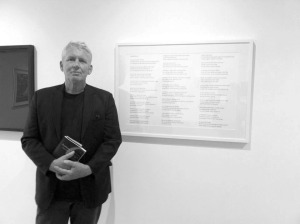


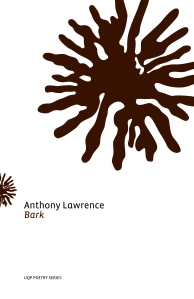

 Tim Ferguson may want to throw off the shackles of being a Doug Anthony All Star but I’m not going to let him. I’m 18. It’s New Year’s Eve. It’s late. It might even be midnight. I’m feeling like I’ve taken an E but the rave scene is yet to come. I’m screaming like those girls at the Beatles. I’m in the audience for the Doug Anthony All Stars and a girl in doc martens is chasing Paul McDermott around the stage like she’s going to eat him alive. She is fast but he is faster. They are both completely desperate. I want to be her.
Tim Ferguson may want to throw off the shackles of being a Doug Anthony All Star but I’m not going to let him. I’m 18. It’s New Year’s Eve. It’s late. It might even be midnight. I’m feeling like I’ve taken an E but the rave scene is yet to come. I’m screaming like those girls at the Beatles. I’m in the audience for the Doug Anthony All Stars and a girl in doc martens is chasing Paul McDermott around the stage like she’s going to eat him alive. She is fast but he is faster. They are both completely desperate. I want to be her. For a while last year, Jo Case and her book
For a while last year, Jo Case and her book  My publisher, Rose Michael, approached me after reading an essay I had written in the Age about my son, football and Asperger’s — and a couple of opinion pieces I’d written about motherhood. She asked me if I had ever thought about writing a book on these themes. As it turned out, I had, but I had never quite had the confidence to believe that my desire to shape my life into a book was anything other than narcissistic .(Doesn’t everyone think they can write a book?) I had started to think about writing a book soon after my son was diagnosed with Asperger’s. I kept a personal blog on an almost daily basis, at times, and I had written a lot about my experiences. I had also looked for memoirs by other parents and people with Asperger’s, and not found much that really spoke to me, so I suspected that there was a readership there. But Rose gave me the confidence to actually do something about my suspicion.
My publisher, Rose Michael, approached me after reading an essay I had written in the Age about my son, football and Asperger’s — and a couple of opinion pieces I’d written about motherhood. She asked me if I had ever thought about writing a book on these themes. As it turned out, I had, but I had never quite had the confidence to believe that my desire to shape my life into a book was anything other than narcissistic .(Doesn’t everyone think they can write a book?) I had started to think about writing a book soon after my son was diagnosed with Asperger’s. I kept a personal blog on an almost daily basis, at times, and I had written a lot about my experiences. I had also looked for memoirs by other parents and people with Asperger’s, and not found much that really spoke to me, so I suspected that there was a readership there. But Rose gave me the confidence to actually do something about my suspicion.
 I’ve got to know Annabel (virtually) in the past year. Her debut novel was published by UWA Publishing, like my own. And since
I’ve got to know Annabel (virtually) in the past year. Her debut novel was published by UWA Publishing, like my own. And since 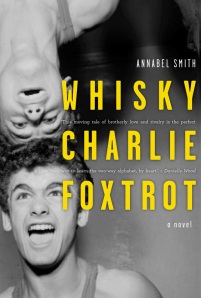 I was writing Whisky Charlie Foxtrot then. After my son was born I wrote a scene in which my protagonist Charlie goes to see his mother, and talks to her about his feeling that his brother was her favourite child. She reveals that it was in fact the opposite, and shares her guilt about this feeling. Parental guilt is something you can’t imagine if you haven’t had children. I’d heard people speak about the feeling that they were constantly doing something wrong, or letting their children down in some way and I’d think, just let it go, stop beating yourself up about it. Then I became a parent and I experienced it for myself and I understood how it gets hold of you. So I wouldn’t have thought of writing that scene unless I had experienced that.
I was writing Whisky Charlie Foxtrot then. After my son was born I wrote a scene in which my protagonist Charlie goes to see his mother, and talks to her about his feeling that his brother was her favourite child. She reveals that it was in fact the opposite, and shares her guilt about this feeling. Parental guilt is something you can’t imagine if you haven’t had children. I’d heard people speak about the feeling that they were constantly doing something wrong, or letting their children down in some way and I’d think, just let it go, stop beating yourself up about it. Then I became a parent and I experienced it for myself and I understood how it gets hold of you. So I wouldn’t have thought of writing that scene unless I had experienced that. The end of the world happens in an instant. But it’s not caused by an asteroid or zombies or any scenario we’ve ever conceived. The apocalypse comes from within us. One second we’re wearing our usual social masks — and the next our every secret thought and feeling is exposed as a global telepathic outbreak drowns humanity in a psychic tsunami.
The end of the world happens in an instant. But it’s not caused by an asteroid or zombies or any scenario we’ve ever conceived. The apocalypse comes from within us. One second we’re wearing our usual social masks — and the next our every secret thought and feeling is exposed as a global telepathic outbreak drowns humanity in a psychic tsunami. An exclusive London hotel. Two shots, two men executed. Ten years earlier they helped convict a conman. Ash Todd of the Australian Federal Police assisted Scotland Yard in that case. Now The Yard has called him in again.
An exclusive London hotel. Two shots, two men executed. Ten years earlier they helped convict a conman. Ash Todd of the Australian Federal Police assisted Scotland Yard in that case. Now The Yard has called him in again. It all began as a fairytale…
It all began as a fairytale… This is a return to classic science fiction with a contemporary spin. While juggling a pacy storyline, filled with unexpected turns, David M Henley brings fresh ideas to the genre.
This is a return to classic science fiction with a contemporary spin. While juggling a pacy storyline, filled with unexpected turns, David M Henley brings fresh ideas to the genre.
 Stella moves from her wheatbelt family home to a run-down house in Cottesloe on WA’s coast. Her daughter, Miff, has died in a motorbike accident; her husband can’t bear to look at her; her father is in a nursing home; her brother is overseas. Her only company is her daughter’s dog.
Stella moves from her wheatbelt family home to a run-down house in Cottesloe on WA’s coast. Her daughter, Miff, has died in a motorbike accident; her husband can’t bear to look at her; her father is in a nursing home; her brother is overseas. Her only company is her daughter’s dog. Layla is only 14. She cruises online. She catches trains to meet strangers. Her mother, Margot, never suspects. Even when Layla brings a man into their home.
Layla is only 14. She cruises online. She catches trains to meet strangers. Her mother, Margot, never suspects. Even when Layla brings a man into their home. Darcy’s short story features in the Penguin anthology: Promise.
Darcy’s short story features in the Penguin anthology: Promise. Rachel Watts has just moved to Melbourne from the country, but the city is the last place she wants to be.
Rachel Watts has just moved to Melbourne from the country, but the city is the last place she wants to be. Ruth is widowed, her sons are grown, and she lives in an isolated beach house outside of town.
Ruth is widowed, her sons are grown, and she lives in an isolated beach house outside of town. Four women. Four lives unravelled. The truth will bind them forever.
Four women. Four lives unravelled. The truth will bind them forever. Cambodia, 1996, the long-running Khmer Rouge insurgency is fragmenting, competing factions of the coalition government scrambling to gain the upper hand. Missing in the chaos is businessman Charles Avery. Hired to find him is Vietnamese Australian ex-cop Max Quinlan.
Cambodia, 1996, the long-running Khmer Rouge insurgency is fragmenting, competing factions of the coalition government scrambling to gain the upper hand. Missing in the chaos is businessman Charles Avery. Hired to find him is Vietnamese Australian ex-cop Max Quinlan.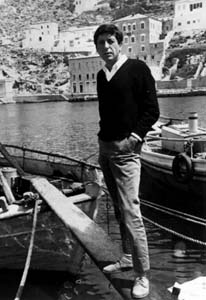
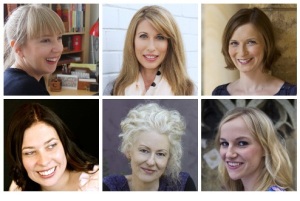
 Whenever I move into a new house (and there have been many: 23 houses, give or take), for the first week I revel in the surroundings. The space. The views. I sit in various places. I observe what’s outside the windows. I lounge in the backyard. I notice where the sun falls, and lie in it.
Whenever I move into a new house (and there have been many: 23 houses, give or take), for the first week I revel in the surroundings. The space. The views. I sit in various places. I observe what’s outside the windows. I lounge in the backyard. I notice where the sun falls, and lie in it.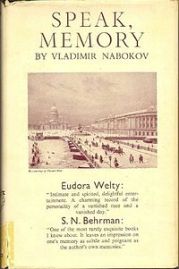 He goes on to talk about Vladimir Nabokov’s Speak, Memory that describes in gloriously delicate detail ‘the slow glide of a raindrop off a leaf’.
He goes on to talk about Vladimir Nabokov’s Speak, Memory that describes in gloriously delicate detail ‘the slow glide of a raindrop off a leaf’.




